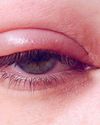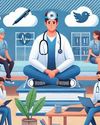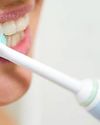
Contact lenses are thin, transparent, lightweight medical devices that are placed directly on the surface of the eye to correct visual defects from refractive errors. They are very similar in their function to those of spectacles. Contact lenses are curved and fit directly on the central, black part of your eye (the cornea) and are either hard or soft.
Contact lenses can be worn to correct vision, or for cosmetic or therapeutic reasons. People who choose to wear contact lenses for aesthetic and cosmetic reasons do so to avoid wearing glasses or to change the appearance of their eyes. Some people wear contact lenses for functional or optical reasons. For example, keratoconus and aniseikonia are some conditions that are corrected better with contact lenses than with glasses.
This story is from the August 2022 edition of Health Vision.
Start your 7-day Magzter GOLD free trial to access thousands of curated premium stories, and 9,000+ magazines and newspapers.
Already a subscriber ? Sign In
This story is from the August 2022 edition of Health Vision.
Start your 7-day Magzter GOLD free trial to access thousands of curated premium stories, and 9,000+ magazines and newspapers.
Already a subscriber? Sign In

Is Blepharitis Affecting Your Vision? Signs to Watch Out For
Blepharitis, a common yet often misunderstood eye condition, refers to the inflammation of the eyelids. It affects people of all ages and can lead to chronic discomfort and vision complications if left untreated.

Illuminating Your Child's Space with Thoughtful Lighting Choices
Here are some thoughtful ideas to help you strike the right balance between lighting and well-being.

Closing the Gap: Why Women Are Missing Out on Crucial Cardiovascular Disease Treatments
Despite progress, research shows that women are often overlooked when it comes to receiving the most effective cardiovascular interventions.

The Silent Struggle - Addressing Mental Health Challenges Among First-Year Medical Students
The journey to becoming a doctor is inherently challenging, but it shouldn't come at the expense of mental health. By addressing the silent struggle faced by first-year medical students, we can create an environment that fosters resilience, empathy, and well-being.

Yoga - An Ancient Approach to Build Personality
Here, we will be exploring the depths of how Yoga can help us in everyday life, specifically about Confidence, leadership, and identity, which are core aspects that keep us going.

The Role of Diet in Managing Menopause - Foods That Help and Hurt
Menopause is a natural phase of life that brings significant hormonal changes, often accompanied by symptoms such as hot flashes, night sweats, mood swings, and weight gain.

Advancement in Robotic Surgery Enhancing Precision and Outcomes
Improvements in robotic surgery have led to better surgical outcomes and higher patient satisfaction. Robotic systems will probably grow smarter, more adaptable, and more common in modern medical practice as well as for patients worldwide in the next years.

The Need for Green Chilli in Our Food: A Scientific Perspective
Let us explores the multifaceted reasons why incorporating green chillies into our meals is not only desirable but beneficial from a scientific standpoint.

New Year 2025: brush twice a day!
The dawn of New Year is time for making resolutions. Most people make resolutions relating to health, savings or studies. So welcome the New Year 2025 with a wish for great oral health. Moreover, if you are not brushing twice a day, then make it your 2025 resolution; brush twice a day because oral health is intimately linked to overall health.

The Impact of Winter on Mental Health
Winter's impact on mental health is significant, with factors such as reduced sunlight, colder weather, and social isolation contributing to mood changes and mental health challenges. For those who experience SAD or feel down during the winter months, it's crucial to recognize the signs and seek appropriate strategies to cope.